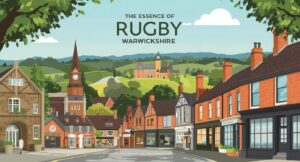When it comes to adding more space to your home, two popular options are conservatories and extensions. Both have their own benefits and drawbacks that need to be considered before making a decision. Here is our article on The Benefits and Drawbacks of Conservatories vs Extensions.
What is a Conservatory?
A conservatory is essentially a greenhouse attached to the side or back of a house. Characterised by its glass walls and often a glass roof. Its primary function is to offer a space where homeowners can enjoy natural light and feel closer to their garden or outdoor surroundings without leaving the comfort of indoors.
Traditionally, conservatories were used for growing plants that needed protection from colder weather. Today, they serve more as additional living spaces. They bring a unique aesthetic appeal, blending the boundaries between home and garden.
Examples of Conservatories – Conservatory | Garden DIY Doors & Windows | Wickes
While they allow for an abundance of sunlight and views of the outdoors, conservatories also come with considerations. Such as the need for effective heating solutions during colder months and measures to prevent overheating in the summer.
As part of a home’s structure, they are subject to building regulations and, in some cases, may require planning permission. The materials used in their construction, like full uPVC or aluminium frames, are chosen for their durability and ability to provide insulation. Albeit to varying degrees depending on the quality and design.
In essence, a conservatory extends living space while offering a distinctive way to enjoy natural environments. Regardless of weather conditions.
Pros and Cons of Conservatories
Pros of conservatories include their ability to flood an area with natural light. Creating a welcoming space that bridges the gap between the indoors and the garden. This unique feature can significantly enhance the aesthetic appeal of a home. Making it feel more spacious and connected to the outdoors.
Moreover, conservatories offer flexibility in use; they can serve as dining rooms, lounges, or even greenhouses, depending on the homeowner’s preferences. Financially, conservatories are often less expensive to construct than full brick extensions. Providing a cost-effective way to add living space.
However, there are cons to consider. One major drawback is the challenge of temperature control. Conservatories can become very hot in summer months and quite cold in winter without proper insulation and heating solutions. Leading to potentially higher energy costs.
Additionally, they might not offer the same level of privacy as a brick extension, given their transparent walls. Long-term maintenance is another factor. The upkeep of glass panels and frames to prevent degradation from weather exposure can incur ongoing costs.
Lastly, while conservatories can add value to a property, the increase might not be as significant as that offered by a traditional extension. Particularly if the conservatory’s build quality or design does not complement the existing structure well.
What is an Extension?
An extension refers to the process of enlarging your home by adding more rooms or expanding existing ones. Typically using materials such as bricks or blocks that either match or complement the existing structure. Unlike a conservatory, which is largely made of glass, extensions are constructed from more traditional building materials and are designed to be a permanent, seamless addition to your house. They can be single or multi-storey and often include features like new kitchens, bathrooms, or additional living spaces.
Extensions offer the advantage of being highly customisable. Allowing homeowners to tailor the new space to their specific needs and tastes. Whether it’s creating a larger kitchen-diner for family gatherings, adding an extra bedroom, or expanding a living room, an extension can provide the necessary additional space that feels integral to the home.
More guidance of what is needed for an Extension – House extensions: The ultimate guide | FMB, Federation of Master Builders
The construction of an extension requires adherence to building regulations, and depending on its size and scope, it might also require planning permission. This process ensures the new addition is safe and in keeping with local development guidelines. Furthermore, the foundation and construction of an extension are designed to be durable and energy-efficient. Providing improved insulation and potentially reducing heating costs in the long run.
The choice of materials and design are crucial in ensuring the extension blends with the existing architecture, maintaining the aesthetic appeal and character of the home. This attention to detail not only enhances the functionality of the house but can also significantly increase its market value. Making an extension a worthwhile investment for many homeowners.
Pros and Cons of Extensions
Extensions bring a wealth of benefits. Including their ability to seamlessly integrate with your existing property, enhancing both space and function. They offer unparalleled versatility, allowing for the addition of rooms that are fully customised to your personal needs. Such as expanded kitchens, extra bedrooms, or larger living areas. This flexibility ensures that every inch of the new space is utilised effectively. Directly contributing to your home’s comfort and usability.
From a privacy perspective, extensions have a clear advantage over conservatories. They are built with solid walls that ensure a private and secure environment. This aspect is particularly appealing for families seeking an extra layer of seclusion in their living space.
In terms of adding value. A well-designed extension can significantly increase your property’s market worth. This boost is due to the permanent and practical living space added. Which appeals to potential buyers looking for a home that doesn’t require immediate modifications.
However, there are considerations to bear in mind. The cost of constructing an extension is typically higher than that of a conservatory. Largely due to the materials used and the complexity of the build. The requirement for planning permission can also introduce delays and additional paperwork, complicating the project timeline. During construction, your daily life may be disrupted as builders work to complete the extension. A temporary inconvenience that can affect your home’s overall harmony.
Lastly, the longevity and performance of an extension depend greatly on quality construction and adherence to building regulations. Underscoring the importance of hiring reputable professionals for the job.
Impact on Home Value

Adding either a conservatory or an extension to your home can significantly influence its market value. The right choice can serve as an appealing feature for potential buyers, enhancing the property’s desirability.
A conservatory, with its glass walls and natural light, can make a home stand out, whilst an extension can offer practical, usable space that appeals to those looking for a ready-to-move-in home. The increase in value, however, heavily depends on the quality of construction, the coherence of the design with the existing property, and the functionality of the added space.
High-quality materials, professional workmanship, and a design that complements the original structure are crucial in ensuring that the addition positively affects the property’s market worth.
It’s also essential to maintain these new spaces well, as neglect could detract from the value they add. In essence, whilst both options can enhance a home’s value, the extent of the impact varies and requires careful consideration of various factors.
Which Should You Choose?
Deciding whether to opt for a conservatory or an extension hinges on your specific circumstances and preferences. Analyse your budget carefully; conservatories often present a more cost-effective solution upfront, but consider the potential for increased heating costs and the need for cooling solutions in the summer. Extensions, while typically more expensive to construct, can offer better insulation and heat retention, potentially saving on energy costs in the long run.
Reflect on the intended use of the additional space. If your goal is to enjoy natural light and a view of your garden with a space that can be versatile, a conservatory might be the answer. However, if you require an extra bedroom, a larger kitchen, or another room that demands privacy and year-round comfort, an extension could serve your needs more effectively.
The Benefits and Drawbacks of Conservatories vs Extensions
Also, think about the architectural style of your home and how each option would complement or enhance it. An extension offers the possibility to match the existing building materials and style closely, whereas a conservatory could add a contrasting design feature.
In summary, weigh the advantages and drawbacks of both options in light of your personal needs, aesthetic preferences, and budget. This thoughtful consideration will guide you towards the right choice for enhancing your home in a way that aligns with your lifestyle and objectives.
Finding the Right Estate Agent

When embarking on a project to add a conservatory or extension to your property, consulting with an estate agent skilled in the Daventry or Rugby areas becomes crucial.
They can offer insights into how these modifications might affect your home’s market appeal. An estate agent with local knowledge can guide you through the complexities of planning permissions, ensuring your project complies with local regulations.
Furthermore, they can advise on the most beneficial features to enhance your property’s value, drawing from their understanding of current market trends. Opting for an agent renowned for professionalism and results can streamline the selling process, should you choose to list your home.
Their expertise will not only help in making informed decisions but also in executing the project efficiently, maximising the potential return on your investment. Prioritise finding an agent who combines local market insight with a solid track record to navigate your property enhancement journey effectively.
The Benefits and Drawbacks of Conservatories vs Extensions
One hopes you have enjoyed our article – The Benefits and Drawbacks of Conservatories vs Extensions. Maybe it has raised a few more questions? If so, call us here at Skilton & Hogg Estate Agents. We are here to help, whether it is just free advice or a property valuation in Daventry, Rugby or the surrounding areas.
Click here to contact us or Click here to arrange a free valuation of you home.




